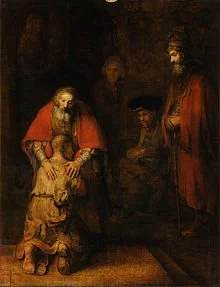Artist Depiction of Pentecost (Pixabay)
Pentecost is May 28th in 2023. Unlike other biblical holy days, some version of the Day of Pentecost is observed by a lot of mainstream churches, both Roman Catholic and Protestant. And of course, since Pentecost is a biblical holy day, it is observed by Church of God groups like the Continuing Church of God. Pentecost is the day that the Holy Spirit descended upon the apostles in the shape of fire (Acts 2:3-4).
Most groups that profess Christ consider that Pentecost marked the formal beginning of the New Testament church.
The term Pentecost is a Greek term meaning 50th. That term is derived from the following Hebrew description of calculating the date:
And you shall count for yourselves from the day after the Sabbath, from the day that you brought the sheaf of the wave offering: seven Sabbaths shall be completed. Count fifty days to the day after the seventh Sabbath (Leviticus 23:15-16).
Early Christians believed that they were supposed to observe Pentecost. And they probably understood this from the Bible and the practices of the early apostles.
For example, the Apostle Paul continued to keep Pentecost decades after the Pentecost mentioned in the second chapter of the Book of Acts. Notice what he wrote, about 56 A.D.:
For I do not wish to see you now on the way; but I hope to stay a while with you, if the Lord permits. But I will tarry in Ephesus until Pentecost (1 Corinthians 16:8).
This shows that Paul knew when Pentecost was, that he felt that the Corinthians must know when Pentecost was, and that the Ephesians would have known when Pentecost was. Thus, it apparently was being observed by Paul and the Gentiles in Ephesus and Corinth.
In another year, the Apostle Paul also wished to be in Jerusalem for Pentecost, around 60 A.D.:
For Paul had decided to sail past Ephesus, so that he would not have to spend time in Asia; for he was hurrying to be at Jerusalem, if possible, on the Day of Pentecost (Acts 20:16).
Thus, Christians in Jerusalem were still observing Pentecost and Paul was observing it too. Otherwise, there would be no obvious reason why Paul wanted to be in Jerusalem on the day of Pentecost.
This was clearly understood by second century writers such as Irenaeus who wrote (circa 180):
Paul taught with simplicity what he knew, not only to those who were [employed] with him, but to those that heard him, he does himself make manifest. For when the bishops and presbyters who came from Ephesus and the other cities adjoining had assembled in Miletus, since he was himself hastening to Jerusalem to observe Pentecost (Irenaeus. Adversus haereses, Book III, Chapter 14, Verse 2). Excerpted from Ante-Nicene Fathers, Volume 1. Edited by Alexander Roberts & James Donaldson. American Edition, 1885. Online Edition Copyright © 2004 by K. Knight).
An old document that was probably altered in the 4th century, titled The Life of Polycarp, specifically mentions the Passover, the Days of Unleavened Bread, and Pentecost. And it records that the Apostle Paul said that they should be kept:
In the days of unleavened bread Paul, coming down from Galatia, arrived in Asia, considering the repose among the faithful in Smyrna to be a great refreshment in Christ Jesus after his severe toil, and intending afterwards to depart to Jerusalem. So in Smyrna he went to visit Strataeas, who had been his hearer in Pamphylia, being a son of Eunice the daughter of Lois. These are they of whom he makes mention when writing to Timothy, saying; Of the unfeigned faith that is in thee, which dwelt first in thy grandmother Lois and in thy mother Eunice; whence we find that Strataeas was a brother of Timothy. Paul then, entering his house and gathering together the faithful there, speaks to them concerning the Passover and the Pentecost, reminding them of the New Covenant of the offering of bread and the cup; how that they ought most assuredly to celebrate it during the days of unleavened bread, but to hold fast the new mystery of the Passion and Resurrection. For here the Apostle plainly teaches that we ought neither to keep it outside the season of unleavened bread, as the heretics do, especially the Phrygians…but named the days of unleavened bread, the Passover, and the Pentecost, thus ratifying the Gospel (Pionius. Life of Polycarp, Chapter 2. Translated by J. B. Lightfoot, The Apostolic Fathers, vol. 3.2, 1889, pp.488-506).
Notice that Paul is shown to have taught Gentiles to keep the biblical Holy Days, including Pentecost. Polycarp, himself, was a faithful early Christian leader who was apparently ordained by the Apostle John and was believed to be a Gentile.
Since the Apostle Paul and other faithful Christians kept Pentecost, shouldn’t you?
Here is a sermon related to the Day of Pentecost: God’s Pentecost Plan and Your Part in It.
Related Items:
Pentecost: Is it more than Acts 2?
Pentecost: Feast of Firstfruits
Sermon series related to the free online book above:
Universal Offer of Salvation 2: Jesus Desires All to be Saved
Mysteries of the Great White Throne Judgment (Universal Offer of Salvation part 3)
Hope of Salvation: How the Continuing Church of God Differs from Protestantism
Sermon series related to the free online book above:
Should You Observe God’s Holy Days or Demonic Holidays?
Is There “An Annual Worship Calendar” In the Bible?
Where is the True Christian Church Today?
Where is the True Christian Church? (sermon)
Continuing History of the Church of God
Sermon series related to the free online book above:
Continuing History of the Church of God: c. 31 to c. 300 A.D.
Continuing History of the Church of God: 4th-16th Centuries
Continuing History of the Church of God: 17th-20th Centuries
The History of Early Christianity Is your faith really based upon the truth or compromise?
Click here for current news and analysis as well as literature in over 120 languages
Click here for free online books and booklets in the English language.
Information on broadcast times for the European Gospel Radio /Short Wave Radio and other radio stations: Radio Stations
LATEST NEWS REPORTS
LATEST BIBLE PROPHECY INTERVIEWS


























